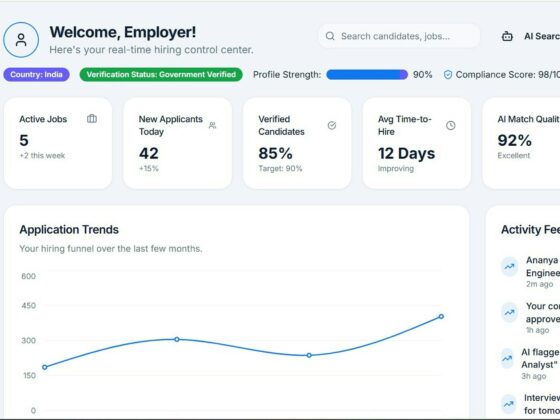
Travellers in the UK are rapidly turning to new sources of information, including Generative Artificial Intelligence (Gen AI) and travel influencers, when it comes to planning their next trip, according to a major new global study released by Amadeus.
According to Connected Journeys: How Technology Will Transform Travel in the Next Decade, 60% more travellers looked to Gen AI for inspiration when planning a leisure trip abroad this year when compared to 2024, while 33% more turned to travel influencers. Social media adverts and posts also grew impact, with 27% more travellers turning to this channel when it came to finding ideas for trips, flights and hotels.
The growing role for Gen AI in the UK was mirrored across key international markets, led by China, where 32% of travellers sought inspiration from tools such as ChatGPT this year, compared to 13% in 2024, an increase of 146%. Increases were also seen in Singapore (82%), Spain (64%), India (53%), and the United States (30%).
Social media ads (up 30% year-on-year) were the fastest growing source of inspiration in France, cementing the role of these two key channels in shaping travel choices.
However, despite the rapid growth of emerging technologies, Brits – 2,000 of whom were questioned for the research – still turn to family and friends for inspiration, at 36% more than any other source of inspiration.
At the same time, 34% sought tips on online travel agencies, suggesting a continued role for a more established generation of search tools.
Recommendations from friends and family was the top source of inspiration for travellers in France (34%) and Spain (33%), revealing European holidaymakers continue to rely on close contacts more than other regions.
When asked about the experience of using AI for trip planning, however, UK travellers offered a mixed verdict.
Many highlighted the ability to help them find destinations they would not have otherwise considered (39%), as well finding ‘hidden gem’ hotels, activities and restaurants (27%).
At the same time, British travellers said they felt more confident about trip decisions when using AI (38%).
However, while just over a third said AI technology helped save time when planning (37%), a quarter (25%) had experienced inaccurate information from AI tools, 33% felt the need to double-check information, 18% had trouble getting the tool to understand their preferences and 17% felt overwhelmed by options.
Decius Valmorbida, president of travel of Amadeus said: “The way people plan travel is transforming rapidly as new digital sources of inspiration gradually replace established practices. New technology is improving every step in the journey from Gen AI inspiration to biometric check-in and immigration at the airport.
“To truly deliver on traveler expectations of a seamless and intuitive experience we believe that more collaboration across the travel ecosystem is required. Every player involved in the traveler journey needs to work together to remove friction and prioritize the traveler, and technology can enable that.”
Francisco (Paco) Pérez-Lozao Rüter, president, hospitality of Amadeus, added: “Everyone is excited about the potential of AI, but the results of this Amadeus study show that Gen AI tools are not yet ready for trip planning prime time.
The industry has a lot of work to do to harness AI, and we need to apply these new models specifically to travel, ensuring they are trained on reliable and accurate information with better integration to the existing travel ecosystem and new interfaces that better harness the potential for personalisation.”
Amadeus’ study also revealed UK travellers are seeking reassurance from AI when travelling.
Around a third (37%) are willing to pay a one-off fee for an ‘AI-travel assistant offering in-trip information,’ stating they were open to an average charge of 2.4% of the cost of an entire trip.
The figure was highest among younger travellers, with 59% of those aged 18-34 willing to pay for an AI assistant, along with 39% of 35–54-year-olds.
When asked about difficulties encountered at the airport, UK travellers said they are most concerned about long queues for check-in (35%), losing travel documents (33%) and lost luggage (32%).
Perhaps that is why respondents are increasingly open to using new technology at the terminal to increase convenience, reduce stress and remove friction.
- 70% of Brits would consider using biometrics to replace repetitive document and identity checks at key airport touchpoints like check-in, boarding and immigration.
- 64% of respondents said they would choose to have their bags checked-in and collected from their home and delivered to their destination.
- A significant minority of respondents expressed a desire for digital wallets to securely store travel documents like passports and boarding passes.
Disruption management now a make-or-break issue for UK travellers
Finally, the Amadeus study reveals it is how travel disruptions are handled rather than the fact they sometimes occur, which matters most in terms of traveller loyalty to a provider.
- More than three-quarters (80%) of respondents agree the true quality of a travel provider emerges clearly in how they handle and communicate about disruptions.
- Streamlined, end-to-end technology solutions that enable effective disruption management can deliver a competitive edge: 81% indicated they would be more likely to rebook with providers who handle disruptions efficiently and transparently.
The study revealed the application of technology is widely supported by UK travellers, however 37% still prefer speaking to a human representative when problems arise alongside those who find reassurance in apps to manage disruptions independently, underscoring the need to provide a range of options.








